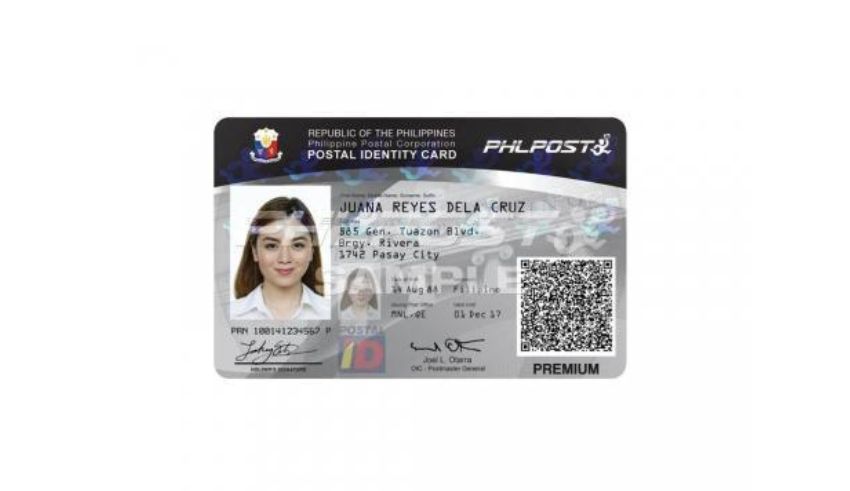
Designed to increase address verification and broaden its usefulness for possible future cashless transactions, the Philippine Postal Corporation (PHLPost) unveiled an improved Postal ID on its 257th anniversary. The new Postal ID is a step toward improving ease and accessibility for Filipinos as part of its larger attempts to improve its offerings. The card could soon be a necessary instrument for many government and financial transactions, therefore underlining PHLPost’s dedication to match changing digital needs.
A Trusted Identification Tool for Financial Transactions and Governmental Processes
For both official and financial uses, the Postal ID has long been a legitimate and generally approved identification card. It provides Filipino people simpler access to different government and financial operations as well as passport applications, therefore substituting for other government-issued IDs. Addition of address verification improves the credibility of the Postal ID and distinguishes it from other IDs without this capability.
Emphasizing the special benefit of the card, PHLPost Postmaster General Luis Carlos said, “A lot of basic IDs don’t have that function… PHLPost therefore knows the individual and their address. By using this upgraded ID, PHLPost aims to simplify transactions and enhance the correctness of address information in official records.
World Acceptance via Universal Postal Union
The revised Postal ID is accepted not only in the Philippines but also in several other nations worldwide. The Postal ID is valid for some foreign transactions thanks to the United Nations body with 192 member nations, the Universal Postal Union (UPU), which makes it a useful document for Filipinos visiting elsewhere. Globally accepted, the Postal ID provides a substitute form of identity and creates possibilities for possible alliances with international companies.
Special advantages for holders of postal ID
PHLPost is negotiating agreements with stores to provide vouchers and discounts just for Postal ID holders. This campaign seeks to raise the value of the card and inspire more application by users. From retail discounts to promotional incentives, PHLPost expects these extra advantages will improve the attractiveness of the Postal ID as more than just a method of identification.
Saying, “We are really looking at [financial functionality] to answer the Bangko Sentral’s issues of the unbanked sector,” PHLPost Chair Stephen Cruz offered observations on the agency’s efforts to improve the functionality of the Postal ID. Aiming to give unbanked Filipinos access to financial services via digital advances, this forward-looking approach fits national aspirations at financial inclusion.
Plans for financial inclusion and cashless transactions
Looking ahead, PHLPost sees the Postal ID operating much like digital wallets like GCash, allowing cardholders to make cashless purchases. If realized, this capability would not only streamline payments for Filipinos but also help the digital financial infrastructure of the country, especially for people without access to conventional banking facilities.
Under Executive Order No. 44, the Philippine Postal Savings Bank was moved to the Land Bank of the Philippines; PHLPost is also actively seeking its reinstatement. Bringing the bank under PHLPost’s authority will enable the agency to increase its financial services and give Postal ID holders greater value, claims PHLPost officials. “In the same manner…it could be transferred back to Philippine Postal Operations also, using an Executive Order also,” Cruz added.
Features of Security and Verification of the New Postal ID
To guarantee the accuracy and safety of cardholder data, the improved Postal ID presents a wide range of security elements. On the card, important personal information including name, address, birthdate, and signature is shown and QR codes allow verification. Scanning this QR code will verify the card’s legitimacy, therefore countering false IDs. Carlos claims that since the encoded information will not show properly if the QR code is replicated, the approach improves PHLPost’s capacity to spot false IDs.
The PHLPost board also wants the new Postal ID to incorporate the intended seven-character ZIP code scheme. Adding a degree of specificity, this future ZIP code system will replace the present four-digit codes used in the Philippines. The province will be represented in the first two letters; numbers denoting the city or municipality will follow; the last three digits will relate to the barrio. PHLPost thinks that this new code scheme will improve address verification especially since it will be included into the Postal ID.
New Postal ID Application Process and Requirements
Getting the new Postal ID is easy. Applications must be turned in at any post office around the country together including full forms, supporting documentation, and payment. Information verifying and biometrics collecting will follow application submission. Necessary records consist of:
- Original and photocopy proof of identity, such National ID from PSA or Local Civil Registry; birth certificate
- SSS UMID Card, GSIS; Driver’s Licence Passport
- For married women, a marriage certificate
- Original and photocopy proof of address covering:
- Certificate of Residency from Barangay
- Barangay Residence ID Certified Actual Lease Utility Bills (electric, water, internet, etc.)
- Current Postal ID holders are urged to bring their IDs for a quicker renewal process. The upgraded Postal ID runs PHP 550; a rush processing option runs PHP 650. For Metro Manila, delivery times are about three days; for provincial locations, they range five to seven days.
Improved postal services include EMS next-day delivery
Along with app e-packets, local and international express mail, PHLPost also revealed its improved Express Mail Service (EMS) Next-Day Delivery, which covers parcel post. This service covers real-time updates, same-day processing and next-business-day delivery, enhanced routing technology, EMS Next-Day Delivery guarantees faster, more dependable service by cutting manual procedures and bringing sophisticated scanning.
The new seven alphabetic codes track EMS shipments, therefore facilitating monitoring of deliveries. Redelivery or parcel collection requests call for a PHP 100 cost, which varies depending on item weight.
PHLPost invites the public to go to its official website for further information on pricing and services.
Looking Ahead: PHLPost’s Innovation Dedication
The efforts of PHLPost to upgrade and improve its offerings show its will to fit evolving needs and forward the digital infrastructure of the country. By means of improvements in the Postal ID and EMS Next-Day Delivery, PHLPost seeks to offer Filipinos all around more effective, easily available, and valued services.
























